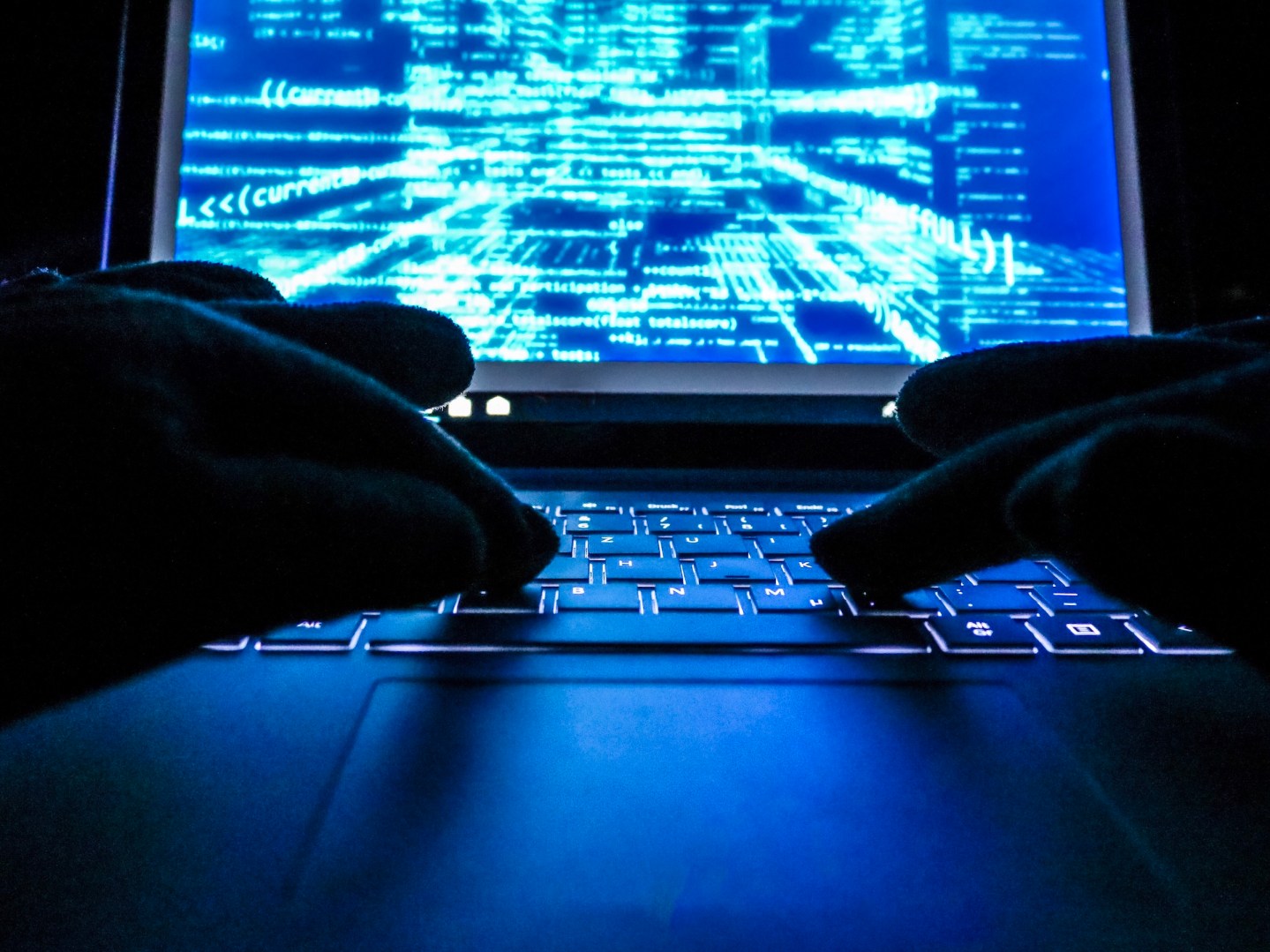
Commentary
-
Our commentary partners will help you reach your own conclusions on complex topics.
The “private side” of America’s mass public-private censorship regime may be about to face its day in court. Before, we told you about the Department of Homeland Security’s Cybersecurity and Infrastructure Security Agency, CISA, and the integral role it’s played as the federal government’s “nerve center” in the censorship-industrial complex.
Evidence, particularly from Missouri and Louisiana et al. v. Biden shows it played a key role in coordinating meetings between government agencies and Big Tech partners to silence political and pandemic-related wrongthink under guise of national security and public health;
“switchboarded” such wrongthink to social media platforms for censorship;
and routed problematic content through other often government-linked research and academic organizations to do the flagging for censorship to social media platforms, to get around that pesky First Amendment.
Now maybe the biggest of the non-government partners with which government agencies, led by CISA, coordinated, the anti-disinformation consortium the Election Integrity Partnership, EIP, and its successor, the Virality Project are facing suit for upholding their half of the censorship bargain.
On May 2, plaintiffs Jill Hines and Jim Hoft brought suit against the often government-linked researchers, academics, and institutions behind these two consortia.
Hines is Co-Director of Health Freedom Louisiana. She launched an effort called Reopen Louisiana during the pandemic. Hines claims that her groups, and their followers on social media have experienced and continue to experience “extensive censorship of her speech on social media, including speech related to COVID-19 restrictions and election-related speech.”
Hoft, who runs The Gateway Pundit, a conservative website, claims such censorship. The Election Integrity Project has referred to him as the “Number Two superspreader” of misinformation on Twitter. The Virality Project has also flagged his vaccine-related speech content as “misinformation.”
In their suit, Hines v. Stamos, they argue the feds, led by CISA, helped birth the EIP, “designed to fill a ‘gap’ in the government’s ability to police so-called ‘misinformation’ and ‘disinformation’ about elections on social media” — that gap being the First Amendment, which it was designed to circumvent;
that the organizations that formed the EIP, and leaders atop them, had extensive ties through either funding or their professional positions to the federal government, and especially CISA – in fact, there was overlapping staffing between CISA and EIP;
federal and state officials flagged speech for censorship that EIP conveyed to the social media companies, which then killed the content – after surveilling, for example, 859 million social media posts on Twitter alone;
overwhelmingly, EIP targeted domestic speakers, and evidence suggests it was overwhelmingly from the right, and concerning the mechanics and outcomes of elections; that it was both viewpoint and content-based discrimination based on the evidence presented by the plaintiffs, implicating 22 million posts on Twitter alone during a four-month period in 2020;
These efforts continued in the 2022 election cycle.
The Virality Project included the EIP cohort and incorporated other institutions as well to combat so-called COVID-19 misinformation on social media.
The Virality Project also allegedly targeted speech on the basis of content and viewpoint – namely that questioning the safety and/or efficacy of COVID-19 vaccines, heavily among domestic actors, and also those protesting vaccine passports and mandates – i.e. political speech.
Among the speech the Virality Project targeted for censorship was “True content which might promote vaccine hesitancy,” per the Twitter Files;
government officials – namely those from federal health agencies provided “tips” to the Virality Project about misinformation on social media, which it flagged to platforms for censorship.
Six social media platforms led by Facebook, Twitter, and Google/YouTube acknowledged that they received tickets from the Virality Project and flagged it for review and action per their policies;
These censorship activities, according to the filing, include targeting certain defendants on the basis of race, religion, and background to prevent them from hearing disfavored speech.
The plaintiffs point to a raft of examples of their speech being censored, thanks to EIP and the Virality Project’s efforts.
They allege, among other things, that the defendants in the case “conspired with each other and with others for the purpose of depriving, either directly or indirectly…plaintiffs…of…rights to freedom of speech, freedom of expression, freedom of association, freedom to petition the government, and freedom to read and listen to the speech of others, all on a discriminatory and invidious basis, and thus to deprive them of the equal protection of the laws, and of equal privileges and immunities under the laws.”
They are suing for damages, and to declare that the defendants have violated the First and Fourteenth Amendments of the constitution among other laws, and to prevent the defendants from continuing to engage in such conduct.
So is this case going anywhere?
We know that the companion, public side Missouri and Louisiana v. Biden case has.
And it turns out that this case is being brought before the same federal judge who has allowed that other case to proceed, including the robust discovery efforts that have revealed this censorship regime, and that one of the key lawyers for the plaintiffs in Hines v. Stamos is also a key lawyer for the plaintiffs in that other case.
So will we get discovery here? Will the speech-stiflers be held to account?
Stay tuned.
-
‘Deep State’ failed to protect Trump
The stated mission of the United States Secret Service is to “ensure the safety and security of our protectees.” However, on July 13 in Butler, Pennsylvania, the Secret Service allowed a lone would-be assassin to fire a shot at former President Donald Trump, grazing his ear with a bullet. Secret Service Director Kimberly Cheatle resigned…
-
The Regime once again meddling in election to hurt Trump
On Tuesday, July 9, the U.S. Department of Justice issued a cybersecurity advisory warning companies about a Russian social media bot farm. U.S. officials told reporters that these Russian bots are targeting U.S. voter groups in key swing states and implied that the goal is to undermine President Joe Biden. Watch the above video as…
-
Clarence Thomas has it right on presidential immunity case
On July 1, the United States Supreme Court ruled in a 6-3 majority opinion for Trump v. United States that American presidents have absolute immunity from prosecution for actions that fall within their constitutional duties. The ruling asserts that evidence of official criminal acts committed by a president cannot even be presented in any U.S.…
-
SCOTUS’ Murthy v. Missouri ruling will live in infamy
On June 26, the U.S. Supreme Court sided with the federal government in the Murthy v. Missouri case regarding official communications between the government and social media platforms. In a 6-3 decision written by Justice Amy Coney Barrett, the court stated that the plaintiffs did not have the legal standing to seek an injunction against…
-
Anti-Trumpers care about power, not democracy
News commentators across the political spectrum — including some contributors here at Straight Arrow News — have warned Americans about Donald Trump’s aspirations to make himself a dictator and effectively end the American republic if he regains power in November. Their warnings cite Trump’s own legal arguments, public statements and past behavior, including the attempted…
Latest Stories
-
 U.S. Department of Defense
U.S. Department of Defense
Congress still trying to figure out how to reduce wasteful military spending
-
 DVIDS
DVIDS
US Navy, Air Force making waves with new weapons at RIMPAC
-
 Getty Images
Getty Images
Israeli PM Netanyahu meets with Trump at Mar-a-Lago
-
 Getty Images
Getty Images
Growing US nuclear power resurgence reaches the nation’s heartland
-
 Getty Images
Getty Images
Beer from the sun, other solar thermal projects get government funding
Popular Opinions
-
In addition to the facts, we believe it’s vital to hear perspectives from all sides of the political spectrum.
Latest Opinions
In addition to the facts, we believe it’s vital to hear perspectives from all sides of the political spectrum. We hope these different voices will help you reach your own conclusions.
The opinions published in this section are solely those of the contributors and do not reflect the views of Straight Arrow News.

















Latest Commentary
We know it is important to hear from a diverse range of observers on the complex topics we face and believe our commentary partners will help you reach your own conclusions.
The commentaries published in this section are solely those of the contributors and do not reflect the views of Straight Arrow News.
Peter Zeihan
Geopolitical StrategistHow future generations could shift US support for Israel
Why election of European Commission president is so important
Protests in Bangladesh signal more trouble ahead
Dr. Frank Luntz
Pollster and Political Analyst‘I don’t know’: Swing voters debate who best to replace Biden
‘Mad as hell’: Americans vent anger, frustration over politics
‘On death’s door’: Undecided voters react to first debate